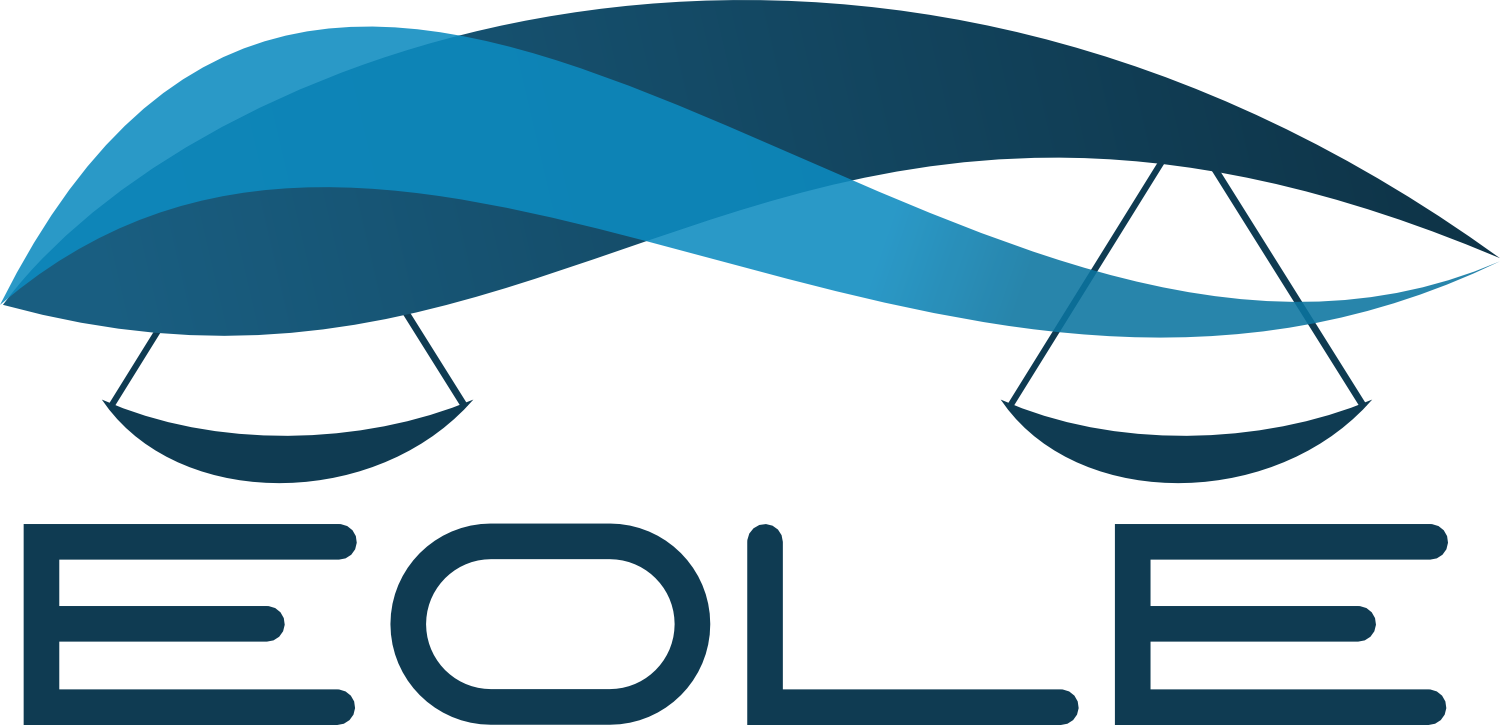EOLE is an annual conference cycle with an international reach, and aims to encourage the pooling and dissemination of legal knowledge relating to open licensing as well as the development and promotion of good practices. An initiative born in 2008 out of the needs of practitioners in the field, EOLE aims to develop a legal doctrine dedicated to open source, with particular attention to the delivery of neutral and quality information. This year, EOLE took place in Marseille on October 16th.
Necessary for some, alternative for others, “digital commons” are becoming the new Eldorado in a society that is sometimes too technological and not human enough. This growing phenomenon is profoundly transforming the practices and uses of many fields: health, mobility, space, etc.
Open Discussion : Free competition and digital commons
During the EOLE event on October 16th, 2019 in Marseille (France), the topic “free competition and digital commons” was the subject of a short presentation by Benjamin Jean (CEO of inno³) before being discussed with the audience and speakers. The following elements are taken from the initial presentation.
Public actors can impose the choice of Free Software in public procurement markets insofar as the underlying development model results in a number of practices that promote competition within the meaning of European competition law. The benefit of this principle implies verifying the combination of precise legal, technical and governance factors.
1/ Interest of Open Source Software for the Public Sector
Open Source Software (also called Free Software) is software whose use, study, modification and redistribution is permitted, both technically and legally, for the benefit of any holder of a copy of the software. They now occupy a prominent place in the landscape of information systems in both the private and public sectors. The specificities of the latter, with a potential for mutualization and a significant need for interoperability, have long led to policy measures enabling administrations to make the most of these affinities with this development model.
Italy has thus imposed such a priority in Italian Law No. 134 of 7 August 2012, where the majority of Member States – such as France, Portugal or the United Kingdom – have adopted policies to promote the use of Open Source Software. In 2018, the “Policy for contributing to the State’s Open Source Software” provided France with a technical framework to strengthen this practice within the Administration. The intrinsic characteristics of Open Source Software transform the relationships between the players in a market and their customers, which is directly reflected in the way in which public procurement contracts are to be used when they specifically designate Open Source Software.
2/ Competitive advantages of Open Source Software
As a matter of principle, the Open Source Software development model is based on the organization of a balanced relationship between all potential contributors to a project in order to encourage the involvement of all by limiting the potential for re-appropriation by a single stakeholder. In order to do this, all intellectual property rights holders grant a free concession of their rights for the entire world, for the duration of the rights, for all uses and on all types of media. In support of this license, known as the “Free License” (or “Open Source License”), a series of material resources are made available to encourage collaboration by guaranteeing that anyone can access, modify and distribute the source code at any time, including in a commercial context. Such governance can be provided in a specific way or by relying on third-party tools and organizations. The Linux Foundation or the Eclipse Foundation provide and ensure the respect of a set of rules in legal and governance terms, which guarantees a sustainable opening of the project.
Within this framework, promoting the emergence of Open Source Software helps to create an environment that is conducive to competition and innovation in public procurement, with the beneficial consequences that this can have on prices, well-being and economic growth. This strong link between Free Software and undistorted competition has been confirmed by various court decisions over the last decades.
Thus, and from the point of view of public procurement, a public purchaser who would like to impose Open Source Software (named or not) in the execution of a service contract does not violate the principle of non-discrimination which is imposed to him. This observation remains true when the contract concerns a named Open Source Software: since the latter is accessible to all under the same conditions, everyone is thus free to formulate an offer in accordance with the expressed needs of the public purchaser, which ultimately contributes to free competition. This analysis was validated in France by a decision of the Council of State in 2011.
3/ Good practices related to the requirement of an Open Source Software in a public procurement
It is possible within the framework of a public contract to impose the choice of Free Software while opening the competition to multiple actors, just as it is possible to impose to the latter a certain number of rules aiming at ensuring that specific developments are well paid back and integrated into the original Open Source Software in order to maintain a virtuous logic. The procedures for formulating such a requirement are recalled in particular in France in the “Guide de l’achat public: Achats informatiques et propriété intellectuelle” published by the FIPA or in the “Guide pratique d’usage des logiciels libres dans les administrations” drawn up by the DGI and in Italy in the guidelines for the acquisition of software.
When the administration chooses to launch a public contract (for the provision of services) on a named Open Source Software, it must be able to demonstrate by any means that the said software corresponds to its needs and that this choice does not contradict the general principle of non-discrimination within a public contract.
In order to do so, it is recommended to carry out upstream verifications, making it possible to validate this choice from a legal, technical and economic point of view as specified in the table below. As far as possible, these elements may be supplemented by genuine strategic reflection at the level of the entity issuing the contract itself – control of developments, interoperability and independence towards a specific supplier, etc. – in order to ensure that the contract is awarded on the basis of the best available information. – and with regard to third parties – particularly in terms of the prospects for pooling developments. Similarly, specific developments carried out on the basis of open source software should in principle be transferred within projects in order to benefit from shared maintenance with other users.
Note that these checks will not be necessary when the sponsor is itself the publisher of the Open Source Software. Indeed, there can be, in such a case, no violation of the principle of free competition since it is guaranteed to any organization the possibility to spread an equal access to the software (source code, documentation, etc.). This does not exclude the interest of integrating some of these clauses into the market in order to provide guarantees to the client.
The other articles of this day :
Following this first panel discussion, discover also the other interventions of this day focused on Legal issues of digital commons.
-
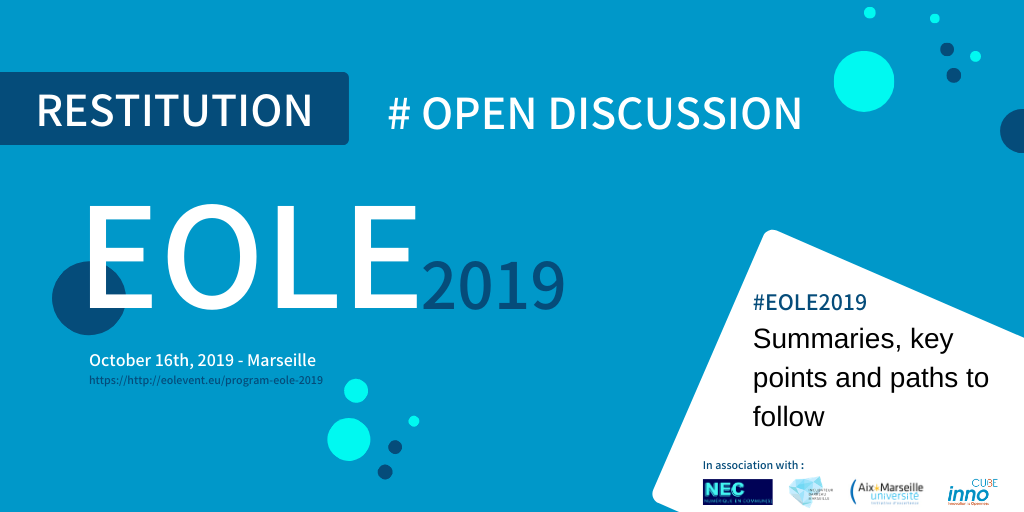
Restitution EOLE 2019 – Open Discussion : Free competition and digital commons
EOLE is an annual conference cycle with an international reach, and aims to encourage the pooling and dissemination of legal knowledge relating to open licensing as well as the development and promotion of good practices. An initiative born in 2008 out of the needs of practitioners in the field, EOLE aims to develop a legal…
-
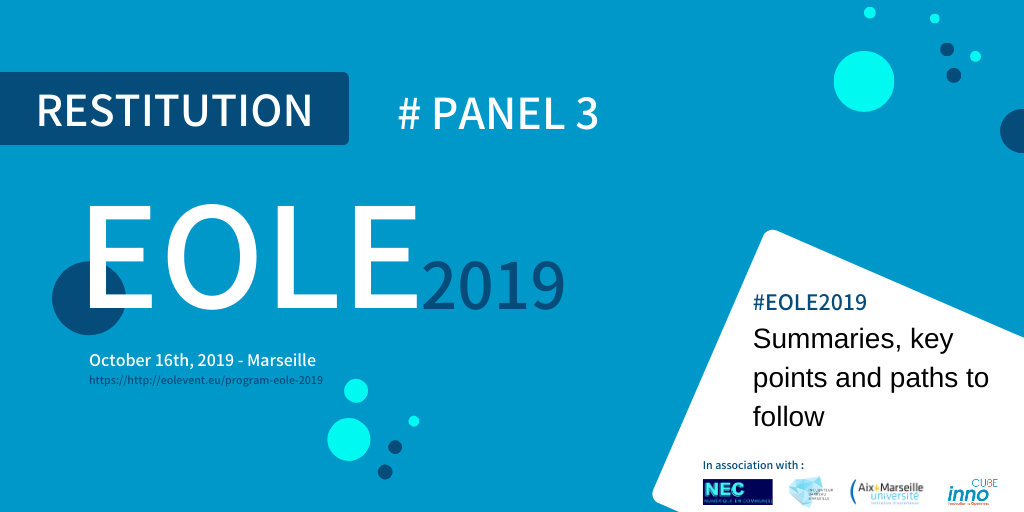
Restitution EOLE 2019 – Panel 3 : Organization and governance of a digital common
EOLE is an annual conference cycle with an international reach, and aims to encourage the pooling and dissemination of legal knowledge relating to open licensing as well as the development and promotion of good practices. An initiative born in 2008 out of the needs of practitioners in the field, EOLE aims to develop a legal…
-
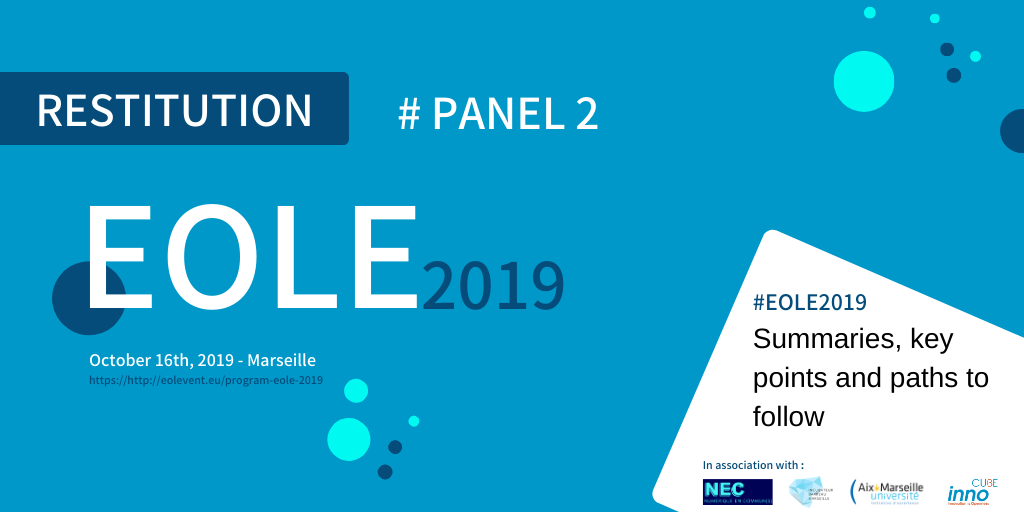
Restitution EOLE 2019 – Panel 2 : Which legal tools for an open collaboration
EOLE is an annual conference cycle with an international reach, and aims to encourage the pooling and dissemination of legal knowledge relating to open licensing as well as the development and promotion of good practices. An initiative born in 2008 out of the needs of practitioners in the field, EOLE aims to develop a legal…
-
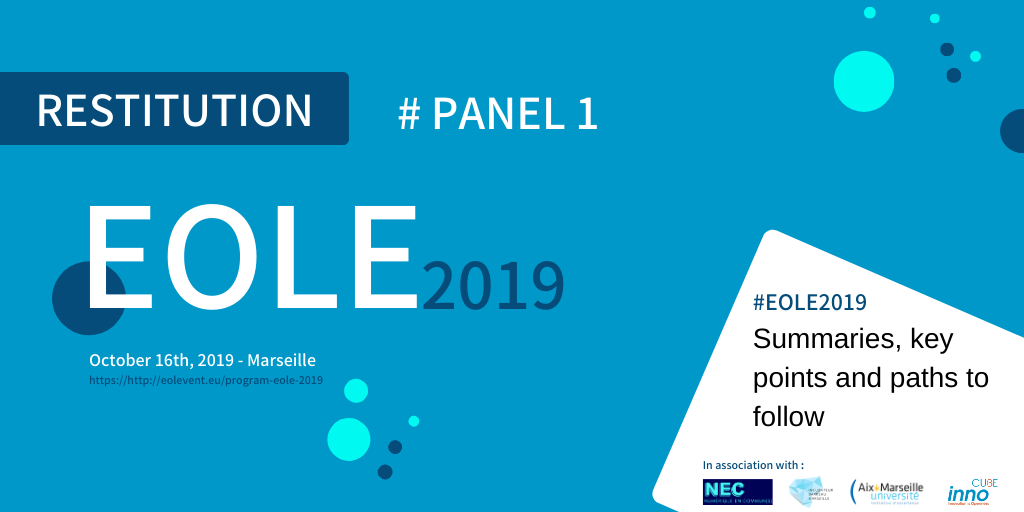
Restitution EOLE 2019 – Panel 1 : Digital commons for everyone
EOLE is an annual conference cycle with an international reach, and aims to encourage the pooling and dissemination of legal knowledge related to open licenses as well as the development and promotion of good practices. Initiative born in 2008 out of the needs of practitioners in the field, EOLE aims to develop a legal doctrine…
